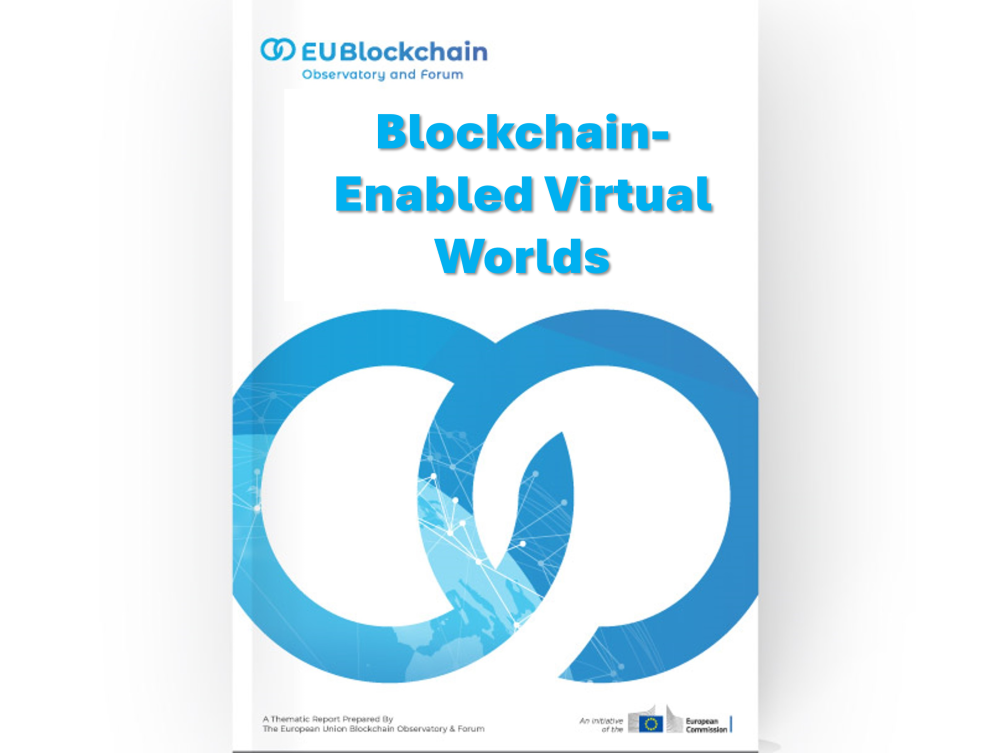
The EU Blockchain Observatory and Forum (EUBOF) is excited to announce the release of its latest report, titled "Blockchain-Enabled Virtual Worlds." This report explores the Open Metaverse, examining its current state, potential impact, and the various considerations that will shape its evolution.
The EUBOF report, defines the Metaverse as a significant shift in digital interaction, blending virtually enhanced physical reality and persistent virtual reality into an immersive network. The Open Metaverse is highlighted for its emphasis on open standards and interoperability, envisaging a decentralized network that champions individual ownership, freedom of expression, and seamless interaction across diverse virtual environments.
The report analyses various aspects of the Open Metaverse, covering political, economic, social, technological, legal, and environmental considerations. It emphasizes the necessity of international cooperation for standardized regulations, the influence of economic conditions on its adoption, and the pivotal role of advanced technologies like blockchain, VR, and AR. Legal challenges, including data privacy and digital rights, are also scrutinized, alongside the environmental implications of the Metaverse.
One of the key findings of the report is the potential of the Open Metaverse to revolutionize industries such as education, entertainment, business, healthcare, and real estate. However, it also identifies significant challenges, including interoperability, privacy concerns, and the digital divide. The report suggests that integrating Web 3.0 principles and establishing comprehensive regulatory frameworks are essential for a user-centered Metaverse.
The report touches upon the EU's potential role in shaping the Metaverse, especially in legal and regulatory aspects. The GDPR's global standard for data privacy and the MiCA regulation for digital assets and cryptocurrencies are identified as critical frameworks for the Metaverse's future.
The Institute For the Future (IFF) of the University of Nicosia has led the scientific team producing the report, which, further to EUBOF team, included notable contributors such as Ioannis Revolidis, Ismael Arribas, Ingrid Vasiliu-Feltes, Inigo Mores, Tadej Slapnik and Antonio Lanotte.
Professor George Giaglis, IFF’s Executive Director stated: “As we stand on the brink of a new digital era, the Open Metaverse presents not just an evolutionary step in our digital interaction, but a revolutionary shift in how we perceive, interact with, and utilize technology in our daily lives. The report released by the EU Blockchain Observatory and Forum provides critical insights into the potential and challenges of this emerging landscape. The University of Nicosia, through the Institute For the Future, is proud to contribute to this pivotal conversation not only by leading this report but by recently introducing the world’s first 100% on-chain university course “Introduction to NFTs and the Metaverse” as well as the world’s first MSc in Metaverse. We look forward to continuing our role in shaping this new digital era”
Media Contact:
Marianna Charalambous
Institute For the Future
charalambous [dot] mari unic [dot] ac [dot] cy (E-mail)
unic [dot] ac [dot] cy (E-mail)
Tonia Damvakeraki
Netcompany-Intrasoft
tonia [dot] damvakeraki netcompany [dot] com (E-mail)
netcompany [dot] com (E-mail)
Details
- Publication date
- 26 April 2024
- Author
- Directorate-General for Communications Networks, Content and Technology
